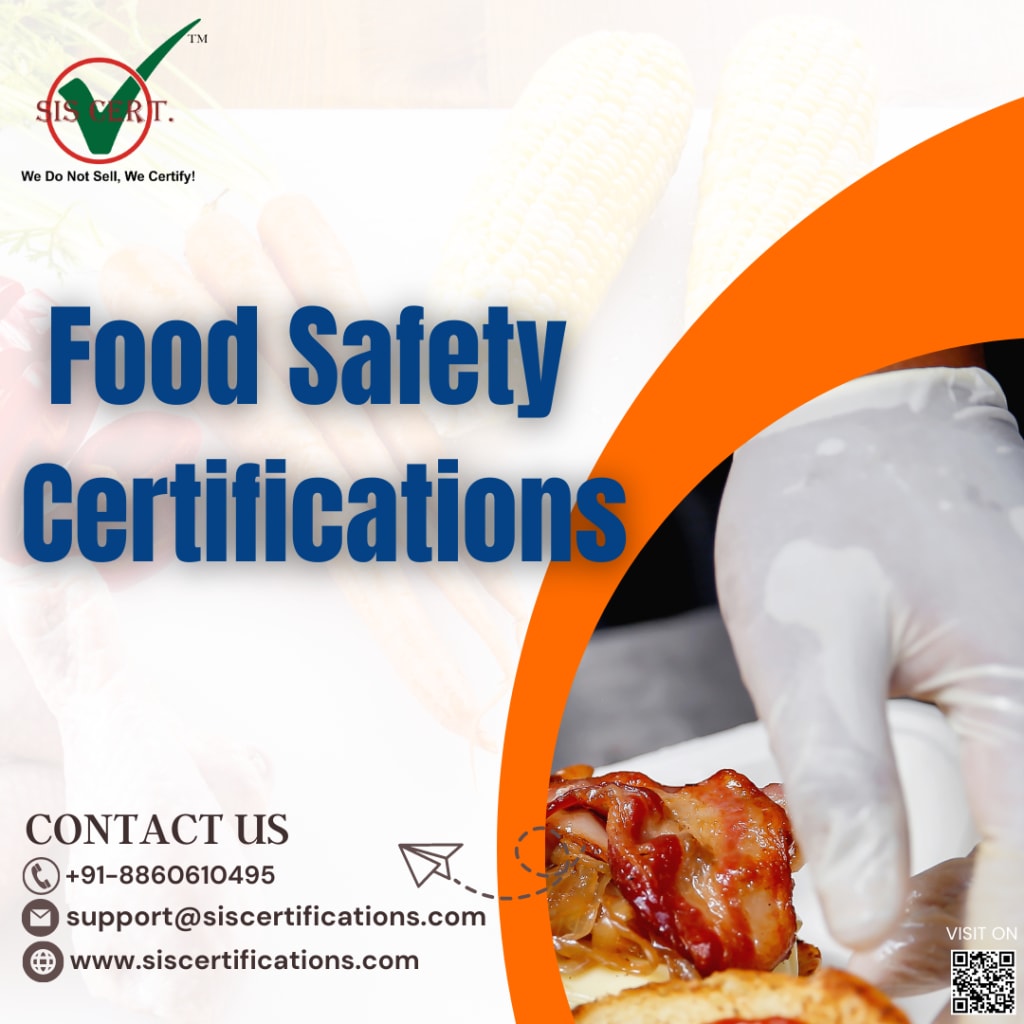Building Trust and Reputation: How Food Safety Certification Impacts Your Brand
Ensuring Quality and Trust: How Food Safety Certification Elevates Your Brand

In today's highly competitive food industry, building trust and maintaining a solid reputation are critical for the success and longevity of any brand. Consumers are increasingly concerned about food safety, quality, and transparency. This has led to a growing emphasis on food safety certifications as a means to establish credibility and assurance. In this article, we will delve into the significance of food safety certification in shaping a brand's reputation and explore the various ways it builds trust with consumers. From enhanced product quality and safety to improved supply chain management, we will examine the tangible benefits of obtaining food safety certifications and how they contribute to long-term brand success.
The Importance of Food Safety Certification:
FSSC certification serves as a powerful tool for brands to demonstrate their commitment to ensuring safe and high-quality products. It involves adhering to rigorous standards and guidelines set by reputable certification bodies. By obtaining food safety certifications, companies showcase their dedication to upholding stringent hygiene practices, minimizing risks of contamination, and complying with regulatory requirements.
Enhancing Consumer Trust:
Food safety certifications play a crucial role in building consumer trust. They provide reassurance that products have undergone thorough inspections and testing, guaranteeing safety and quality. Certifications act as a visible symbol that signifies a brand's dedication to meeting stringent standards and mitigating potential health hazards. As consumers become more conscious about their food choices, they seek out certified products, placing trust in brands that prioritize their well-being.
Mitigating Risks and Liability:
By implementing food safety management systems and acquiring certifications, brands reduce the risk of foodborne illnesses, product recalls, and legal liabilities. Certifications ensure that proper protocols are in place, including traceability measures, allergen control, and sanitation practices. In the event of a crisis or contamination issue, having the appropriate certifications demonstrates proactive efforts to prevent such incidents and can help mitigate reputational damage.
Strengthening Supply Chain Management:
Food safety certifications extend beyond individual brands and impact the entire supply chain. Suppliers and vendors are increasingly required to meet certification standards, ensuring consistent safety and quality throughout the chain. This strengthens relationships with suppliers, establishes a robust quality control system, and reduces the chances of compromised ingredients or materials entering the production process.
Accessing New Markets and Opportunities :
Food safety certifications open doors to new markets and business opportunities. Many retailers, distributors, and even consumers prefer to work with certified suppliers and brands. Certifications provide a competitive edge, enabling brands to expand their customer base and reach. They demonstrate a commitment to meeting international standards, allowing for global market access and potential partnerships with distributors and retailers worldwide.
Continuous Improvement and Innovation:
Obtaining food safety certifications requires a commitment to continuous improvement and innovation. Certification bodies often encourage brands to maintain and enhance their standards over time, fostering a culture of ongoing improvement. This commitment enables brands to stay ahead of evolving industry trends, consumer preferences, and regulatory changes. By integrating feedback and adopting new practices, certified brands demonstrate their adaptability and dedication to meeting consumer expectations.
Conclusion:
In an era where consumers demand transparency and accountability, food safety certifications are invaluable for building trust and maintaining a positive brand reputation. Certifications provide a tangible way for brands to showcase their commitment to food safety, quality, and regulatory compliance. By investing in these certifications, brands gain a competitive edge, mitigate risks, and unlock new market opportunities. Moreover, certifications foster a culture of continuous improvement, driving innovation and long-term success. As consumers become more discerning in their food choices, the impact of food safety certification on a brand's reputation cannot be underestimated. By prioritizing food safety and obtaining relevant certifications, brands can establish trust, gain a competitive advantage, and cultivate a loyal customer base that values quality, safety, and transparency in their food choices.





Comments
There are no comments for this story
Be the first to respond and start the conversation.